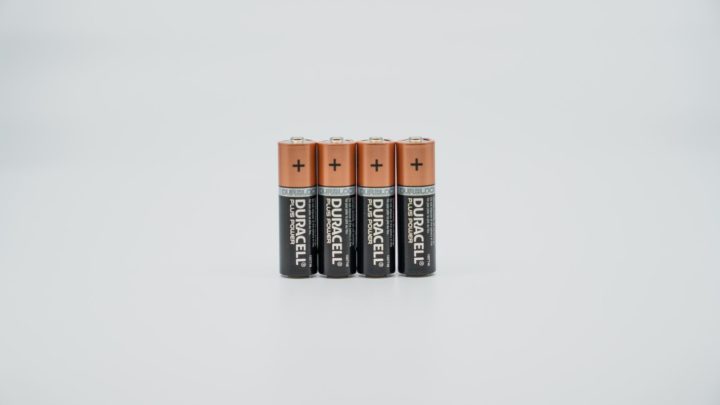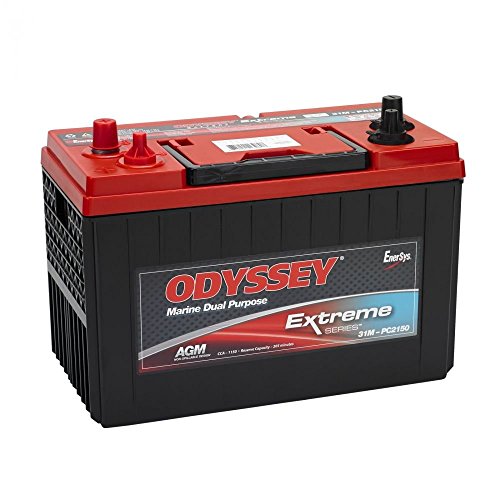Familiarizing yourself with marine batteries is crucial before purchasing the right one for your bass boat. There are several types of boat batteries such as cranking, AGM, dual-purpose, and more.
Now, with bass boats, you’re not going to be looking for one battery. Instead, these sorts of boats can carry two or more batteries depending on how many motors the boat has. Plus, each motor has different requirements when it comes to battery power.
In most cases, there are two kinds of motors in a bass boat, a trolling and outboard motor that propels and starts the engine, respectively.
If you’re unsure how to take your pick, stick around to learn more about our top picks of best bass boat batteries.
Top Bass Boat Batteries
Each motor in your bass boat needs specific batteries according to factors such as its amp capacity and voltage. Here are a few different types of boat batteries depending on various kinds of motors.
1. Optima Battery
The Optima is typically a heavy-duty battery that’s commonly used for trucks and speed cars. Nevertheless, the bursts of energy this battery will provide are ideal for your bass boat’s motor. Additionally, the battery is resistant to any harsh weather environments, even water exposure.
Since this Optima model is valued for its cranking ability, it would be best used for your starting engine. On top of that, this battery’s lifespan is relatively high due to its long 90-minute reserve capacity and high vibration resistance.
Maintenance-wise, you won’t have to do much since the battery is made of absorbent glass matt (AGM) technology. This means no acid leaks and only surface-level wiping.
Product Specifications
- Voltage: 12V
- Reserve Capacity: 90 min
- Product Weight: 31.7 lbs
- Cold Crank Amps: 720
Pros
- Made with AGM technology
- Maintenance-free
- Optimal vibration resistance
Cons
- Not suitable for deep cycle purposes
2. VMAX Solar Battery
The VMAX Solar battery offers a viable option as a deep cycle battery. The military-grade battery employs AGM technology and is suitable for emergency or daily use.
The best part about this battery is that it comes with a calculator that can help you determine your battery requirements to fulfill your bass boat’s power needs.
The VMAX Solar battery is most suitable for powering trolling motors, lights, navigation, and fish finders.
Product Specifications
- Voltage: 12V
- Reserve Capacity: 260 min
- Product Weight: 75 lbs
- Cold Crank Amps: 2500
Pros
- Relatively affordable
- Includes battery calculator
- Lasts up to eight to ten years long
Cons
- Can be heavy when handling and maintaining
3. Odyssey Battery
This Odyssey battery model functions as a dual-purpose battery, where it’s used for both cranking and deep cycle purposes. This means you can use it for your bass boat’s outboard, starting, and trolling motors.
Now, the battery’s depth of discharge is the amount of energy cycled in and out of the battery per cycle. In the Odyssey’s case, it accumulates over 400 cycles at 80% capacity of the battery. In addition to this, the battery’s lifespan is relatively higher than other dual-purpose marine batteries.
It can efficiently power several electronic components in the boat such as the GPS, sonar, and radio. When it comes to reserve capacity, the battery can power for 205 minutes at 80 degrees Fahrenheit.
Product Specifications
- Voltage: 12V
- Reserve Capacity: 205 min
- Product Weight: 77.8 lbs
- Cold Crank Amps: 1150
Pros
- Long lifespan
- Heat and cold-resistant
- Versatile in use
Cons
- Tends to be on the pricier end
Buyer’s Guide
Choosing the right bass boat battery largely depends on getting your specs right. Check out our buyer’s guide for a better overview of what to consider before purchasing a boat battery.
Battery Type
The two main types of boat batteries available in the market are either deep cycle or cranking batteries. Both are produced for different purposes. The deep cycle battery is composed of fewer and thicker plates designed to diffuse energy at a gradual pace. This sort of battery is ideal for trolling motors.
Meanwhile, a cranking battery has a larger number of thin plates that are made to give off more energy at frequent intervals. These batteries generally produce more amps. It’s worth noting that you can’t use cranking and deep cycle batteries interchangeably, otherwise you may risk damage and decrease their lifespan.
There are also other kinds of batteries such as dual-purpose ones designed for small boats that can only fit one battery for both cranking and deep cycle purposes. This kind of battery doesn’t start your engine or provide deep discharges as well as cranking and deep cycle batteries, respectively.
Battery Size and Voltage
The battery’s size is directly correlated to the bass boat’s size. In other words, the larger the boat, the larger the battery. As a general rule of thumb, a ratio of 5 lbs of thrust for every 200 lbs of the boat’s weight is what you should aim for.
Typically for bass boats, a 12V battery is sufficient. If your bass boat reaches 16 ft or more, then you may need a 24V battery instead.
Battery RC
The reserve capacity or RC of a battery determines how long a new battery can operate if the boat’s alternator malfunctions. It essentially indicates the number of minutes a battery can power through 25 amps at 80 degrees Fahrenheit.
It basically provides reinforcements to the electricity system in a battery and gives more energy supply in case demand runs high.
Battery Age
You may want to find out how old the battery is from its manufacturing date. The ideal age you’ll want to browse for is three months from production since it provides the best output and efficiency.
Battery CCA
CCA, otherwise known as cold-cranking amps, decides the boat’s capability of revving its engine or motor in cold temperatures. The higher the CCA rating of a boat battery, the more versatile its operation on all sorts of motors and engines.
To Conclude
Marine boat batteries can be tough to wrap your head around, especially for new boaters. Nevertheless, once you figure out the needed battery requirements for each motor, it’s smooth sailing from then on.
In most scenarios, you’ll likely need either a deep cycle or a cranking battery for a bass boat. Each battery is compatible with different motor needs whether it’s for trolling or outboard motors.
That being said, a user manual can go a long way in helping you understand what kind of motor you have and the battery specs it needs.




